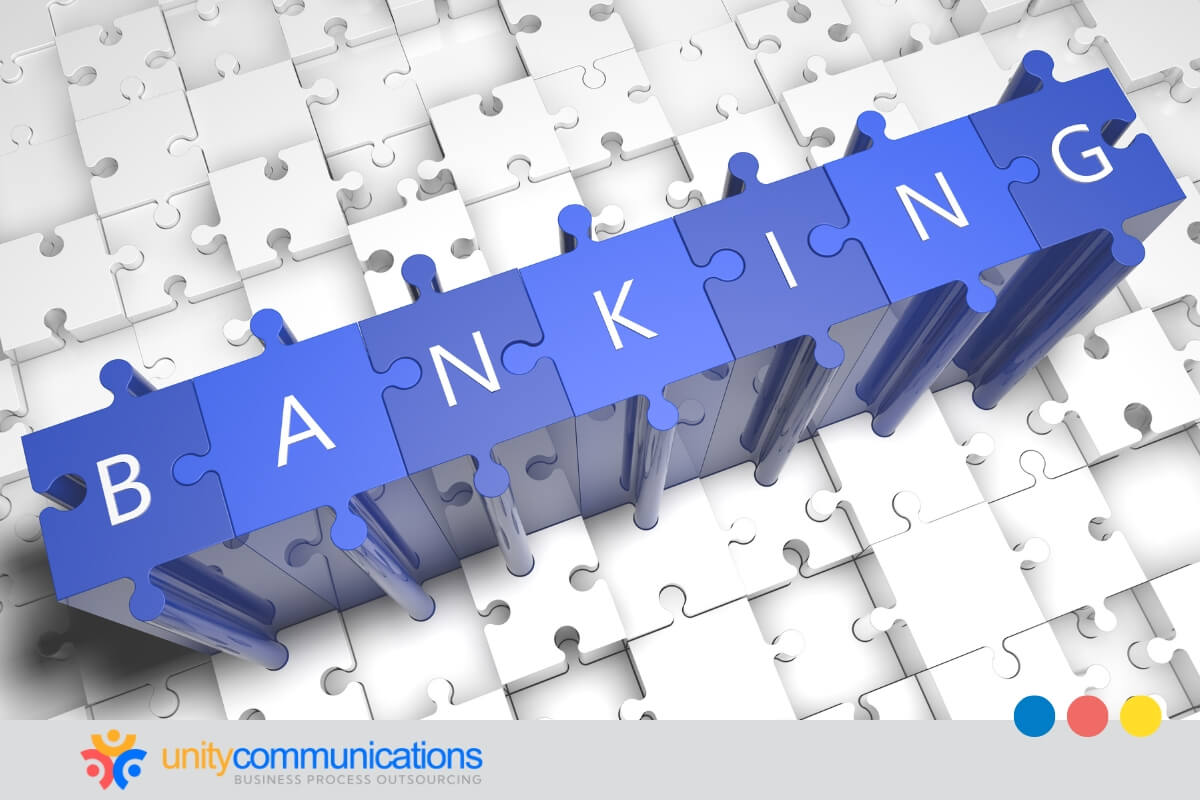IN THIS ARTICLE
Table of Contents
Digital transformation continues to drive the banking industry. However, outdated systems, regulatory demands, and greater customer expectations hinder many organizations from adopting it. Digitalization can also strain internal resources, slowing down key initiatives.
Business process outsourcing (BPO) is a viable strategy for enabling digital transformation in the banking industry. By leveraging external capabilities for non-core functions, companies can reduce operational pressures and accelerate digitalization. Keep reading to learn about BPO’s unseen role and benefits!
The role of BPO in modernizing banking processes

As online shopping and mobile apps grow, banks must rethink their operations to stay competitive. Effective digital transformation requires a comprehensive approach to improve customer engagement and optimize back-end processes. What is BPO’s role in this process?
BPO provides a pathway for banks to transition from legacy systems to digital-first infrastructure. Institutions can focus their resources on core functions and key initiatives by outsourcing non-core processes, such as data management, customer support, and regulatory compliance.
In addition, BPO solutions offer the flexibility and scalability that traditional banking infrastructure lacks. Third-party firms often leverage and integrate the latest technology, including artificial intelligence (AI), machine learning (ML), and cloud, to maximize the benefits of digital strategy and customize products and services on demand.
More importantly, BPO companies can offer these capabilities at a fraction of the cost of managing digitalization in-house.
The following further explains how BPO assists organizations in navigating digital transformation in banking:
Enhancing customer experience
In the digital age, customer experience is a crucial differentiator for banks. BPO helps financial institutions enhance customer interactions by providing specialized support for digital services such as mobile banking, chatbots, and automated customer service.
Moreover, outsourcing firms often employ advanced analytics to assess customer behavior and preferences. Real-time customer insights help banks develop more targeted and customized products and foster deeper customer loyalty.
Accelerating innovation and technological adoption
The banking industry is undergoing rapid technological change, with innovations such as blockchain, AI, and fintech reshaping it. BPO providers are often at the forefront of these technological advancements, enabling banks to tap into cutting-edge solutions without making in-house investments.
By outsourcing technology-related processes, banks integrate innovations into their digital transformation strategy more rapidly. Whether AI-driven fraud detection or blockchain-based payment solutions, BPO facilitates faster adoption of transformative technologies, positioning banks to meet the demands of a digital-first marketplace.
The growing reliance on BPO is evident in the forecasted global revenue for the IT outsourcing segment, which could increase by $271.7 billion between 2024 and 2029. This trend underscores the vital role that BPO plays in accelerating technological adoption and innovation.
Improving operational efficiency and reducing costs
Operational efficiency is a top priority for banks undergoing digital transformation. BPO helps achieve this by optimizing processes and reducing redundancies. Banks can drastically cut operating costs while improving service delivery by outsourcing tasks such as transaction processing, technical support, and compliance management.
Additionally, BPO allows banks to operate with greater agility, as external service providers can quickly scale operations in response to market demands. This scalability reduces operational bottlenecks and hastens the deployment of digital solutions, which is crucial for market competitiveness.
The long-term benefits of BPO for digital banking

The long-term benefits of BPO go beyond cost savings and operational efficiencies during digital transformation. As banks become more dependent on digital services, BPO ensures the continuity and compliance necessary to stay ahead in a constantly evolving banking industry.
24/7 service availability
Outsourcing 24/7 services sets digital banks up for lasting success; they can provide continuous access to client support and services. This availability strengthens customer relationships, as clients increasingly rely on their bank to assist them anytime, anywhere.
As digital banks expand, especially into international markets, maintaining round-the-clock service becomes essential to meet the needs of a global customer base. Consistent accessibility enhances customer satisfaction and drives long-term loyalty.
Banks benefit from the cost-effectiveness of outsourcing, allowing them to avoid the overhead of managing in-house teams for 24/7 operations while maintaining their competitive edge as reliable, customer-focused institutions.
Regulatory compliance
As regulatory environments become more complex, digital banks that outsource can maintain compliance. Specialized BPO providers continuously update themselves on the laws and regulations that affect operations.
BPO partnerships help banks avoid costly fines and legal issues and operate smoothly without constantly reallocating internal resources to monitor changes. Consistently meeting regulatory requirements builds trust with customers and regulators and reinforces the business’s credibility.
By outsourcing compliance intricacies to external experts, digital banks enhance operational efficiency and secure long-term standing in a highly regulated industry.
Risk management
In today’s digitally driven banking landscape, effectively managing risks such as cybersecurity threats and fraud is crucial. By outsourcing this function, digital banks gain access to the latest technology and expertise, helping them stay protected against evolving threats.
BPO providers often deploy advanced tools to detect risks early, allowing banks to adapt to new challenges without requiring significant in-house investment. Ultimately, this creates a secure and stable environment that fosters customer trust.
In 2023, 73% of leaders agreed that cybersecurity and privacy regulations effectively diminished their organizations’ cyber risks. By ensuring compliance with such laws, BPO providers also significantly reduce the likelihood of security breaches or financial losses, safeguarding the banks’ reputation.
Lastly, outsourcing risk management enhances banks’ ability to quickly respond to incidents with scalable resources. During a security breach or fraud attempt, BPO providers can rapidly deploy specialized teams and technology to contain the threat, minimize impact, and restore operations. This agility is challenging to manage in-house. It requires deeper IT expertise and tools that BPO teams possess.
Speed to market
A key benefit of BPO is the agility to launch new products and services faster than competitors. By handing off routine operational tasks, digital banks free up resources to focus on innovation and customer engagement.
The synergy of BPO and digital transformation allows financial institutions to quickly adapt and introduce offerings that meet the evolving needs of their customers in a technology-driven marketplace. As a result, banks can continually meet market demands, keep pace with emerging trends, and reinforce their reputation as industry leaders.
Additionally, as digital banks grow, outsourcing helps them scale operations without compromising speed to market or flexibility. They can maintain their momentum in a dynamic marketplace.
The bottom line

Integrating BPO solutions into digital transformation strategies is essential for maintaining competitiveness and operational efficiency in the fast-evolving banking industry.
From enhancing customer experience to streamlining compliance and mitigating risks, BPO empowers banks to adapt quickly to market changes. The ability to scale, adopt innovative technologies, and deliver services efficiently positions these banks for long-term success.
For financial institutions seeking to stay ahead in this digitally driven landscape, partnering with a BPO provider can unlock new opportunities for growth and agility. To explore how BPO can elevate your digital transformation efforts, let’s connect and start building the future of banking together.





